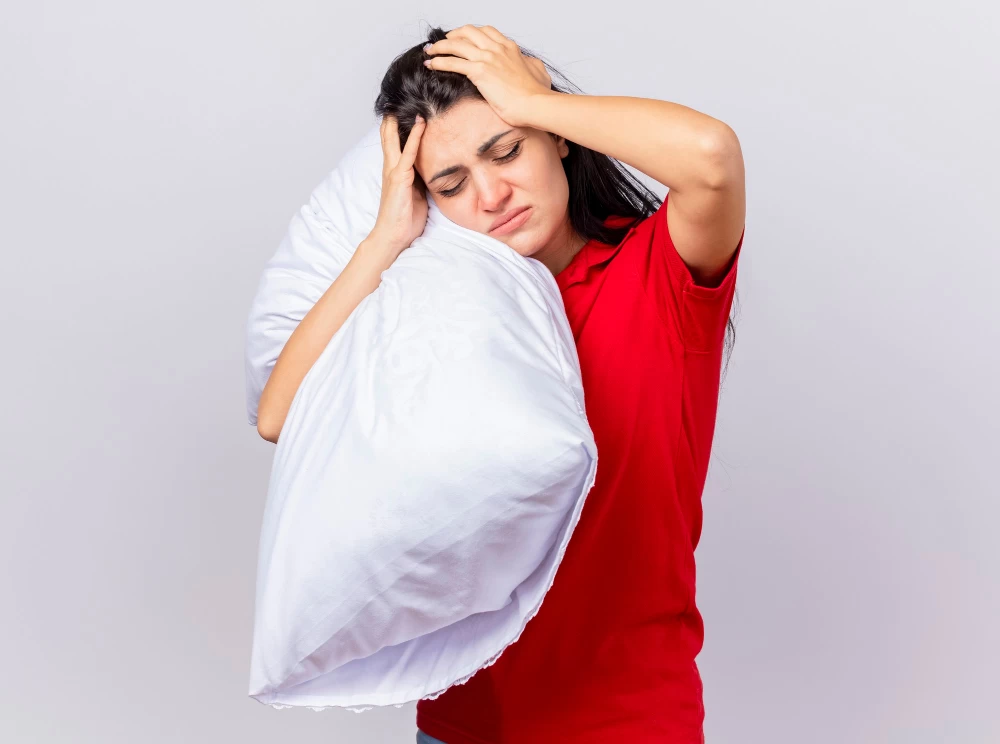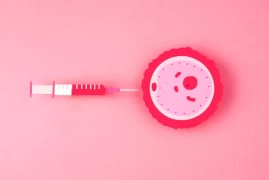
Women's Nightmare: Hot Flashes
- Women's Nightmare: Hot Flashes
- What is Hot Flashes in Women?
- What are the Symptoms of Hot Flashes in Women?
- What are the Causes of Hot Flashes in Women?
- What are the Treatment Methods for Hot Flashes in Women?
What is Hot Flashes in Women?
Hot flashes are a common symptom in women during menopause or perimenopause. Menopause is the end of the menstrual period in women and usually occurs in their 50s. Perimenopause is the period before the end of the menstrual period and usually begins in the 40s.
What are the Symptoms of Hot Flashes in Women?
Hot flashes in women are among the symptoms that usually occur during menopause or perimenopause. The following symptoms are the most common symptoms of hot flashes in women:
- A sudden feeling of warmth
- Sweating
- Increase in heart rate
- Redness in the face, neck and chest area
- Dizziness
- Weakness
- Tremor
- Sleeping disorder
- Anxiety and irritability
- Night sweats
Hot flashes usually come on suddenly and last for a few minutes, but in some women they can last for several hours. Also, the severity and frequency of hot flashes differ from person to person. For some women it may be mild and infrequent, while for others it may be intense and distressing.
Hot flashes in women are usually most intense in the first few years of menopause, but in some women they can continue after menopause. Also, some women never experience hot flashes, while for others the process can be quite uncomfortable.
What are the Causes of Hot Flashes in Women?
Hot flashes in women are a symptom that usually occurs during menopause or perimenopause. Causes of hot flashes include changes in hormones, stress, lifestyle factors, environmental factors, and some medications.
- Changes in hormones: Estrogen hormone levels drop during menopause and this can cause changes in the brain region called the hypothalamus, which has an effect on body temperature regulation. These changes can cause hot flashes to appear.
- Stress: Stress can raise the body's temperature and trigger hot flashes.
- Lifestyle factors: Lifestyle factors such as alcohol consumption, smoking, overweight, irregular sleep and insufficient physical activity can trigger hot flashes.
- Environmental factors: Environmental factors such as hot weather, hot drinks or food, synthetic fabrics and tight clothing can trigger hot flashes.
- Medications: Some medications, especially antidepressants and hormonal treatments, can cause hot flashes.
Also, hot flashes are more common in women with a family history, and certain health conditions, such as hyperthyroidism, tuberculosis, and cancer, can also cause hot flashes.
What are the Treatment Methods for Hot Flashes in Women?
Treatment methods for hot flashes in women include:
- Hormonal therapy: For menopausal or perimenopausal women, hormone replacement therapy (HRT) or other hormonal therapy can prevent or reduce hot flashes. These treatments are used to replace the deficiency of hormones such as estrogen and progesterone. However, the risks of hormonal treatments should also be taken into account and a doctor's advice should be sought.
- Antidepressants: Some antidepressant medications can be used to prevent or reduce hot flashes. These drugs work by increasing serotonin levels in the brain.
- Blood pressure medications: Some blood pressure medications, especially beta blockers, can reduce hot flashes. These drugs work by lowering the heart rate and widening blood vessels.
- Herbal treatments: Some herbal supplements, such as soy supplements, may be helpful in reducing hot flashes. However, since there is insufficient evidence for the safety and effectiveness of herbal supplements, it is important to consult a doctor before using any supplement.
- Other medications: Some other medications, such as some blood pressure medications such as clonidine, and some epilepsy medications such as gabapentin, can reduce hot flashes.
- Lifestyle changes: It is important to adopt a healthy lifestyle to prevent or reduce hot flashes. Healthy lifestyle choices, such as exercising regularly, eating a healthy diet, limiting alcohol consumption, and not smoking, can prevent or reduce hot flashes.
As a result, it is recommended that women who complain of hot flashes first consult a doctor and determine an appropriate treatment plan. Every woman's situation is different, so the most appropriate treatment should be determined by a doctor.





